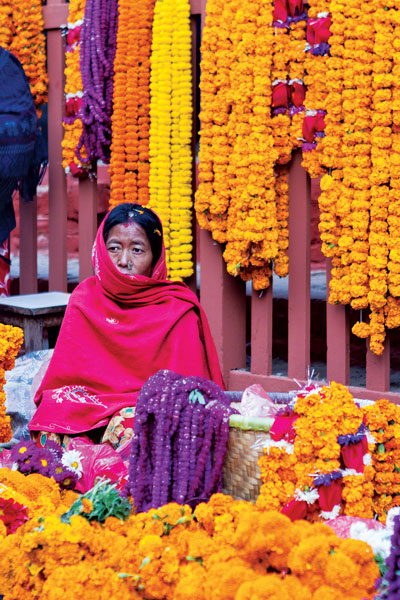Flower Farmers Demand Fair Prices: Time for Government Action
As Nepal gears up for its most colorful festivals Dashain and Tihar the nation’s flower fields should be blooming with prosperity. Instead, many Nepali flower farmers are struggling to sell their hard-earned harvest at fair prices.
Across districts like Tanahun, Pokhara, and Chitwan, farmers who spent months nurturing marigolds, makhamali, and sayapatri are now watching their flowers wilt unsold. Despite high festival demand, market prices have dropped dramatically with garland prices falling by nearly half compared to last year. Some farmers expected to earn over Rs 200,000, but barely made Rs 50,000 this season.
The Struggle Behind the Bloom
Behind every vibrant garland is a story of hard work early mornings in muddy fields, unpredictable weather, and rising input costs. Yet when it’s time to sell, many farmers face middlemen-controlled pricing and cheap imported flowers flooding the market from India.
The result? Local farmers lose out, even during Nepal’s biggest flower season.
“We worked all year, but we’re selling at a loss.”
Many farmers have voiced frustration that there is no fixed or minimum price to protect them. Without government-set rates, prices fluctuate wildly often falling below production costs.
In Pokhara, local authorities had to step in and offer Rs 20 per unsold garland as compensation a kind gesture, but far from a long-term solution.
What Farmers Are Asking For
Flower growers across the country are urging the government to:
- Set a fair minimum price for key festival flowers like marigold and makhamali.
- Regulate imports during the Dashain-Tihar season so local flowers get priority.
- Provide cold storage and transport support to prevent waste.
- Offer training and technical guidance to help improve quality and yield.
- Establish direct farmer markets to cut out unfair middlemen.
Why It Matters
Flower farming isn’t just business it’s a cultural and economic lifeline for thousands of Nepali families. Every garland sold represents livelihoods, traditions, and community pride. Supporting local farmers means preserving Nepal’s floral heritage while ensuring that the people behind the petals can live with dignity.
A Call for Change
As we celebrate the festivals that fill our homes with color and joy, it’s time to stand with those who make them possible.
Nepal’s flower farmers deserve fair prices, stable markets, and respect for their labor. The government’s timely action through fixed pricing, better infrastructure, and import regulation could turn their fading hopes into a truly blooming future.
Share this content:










Post Comment